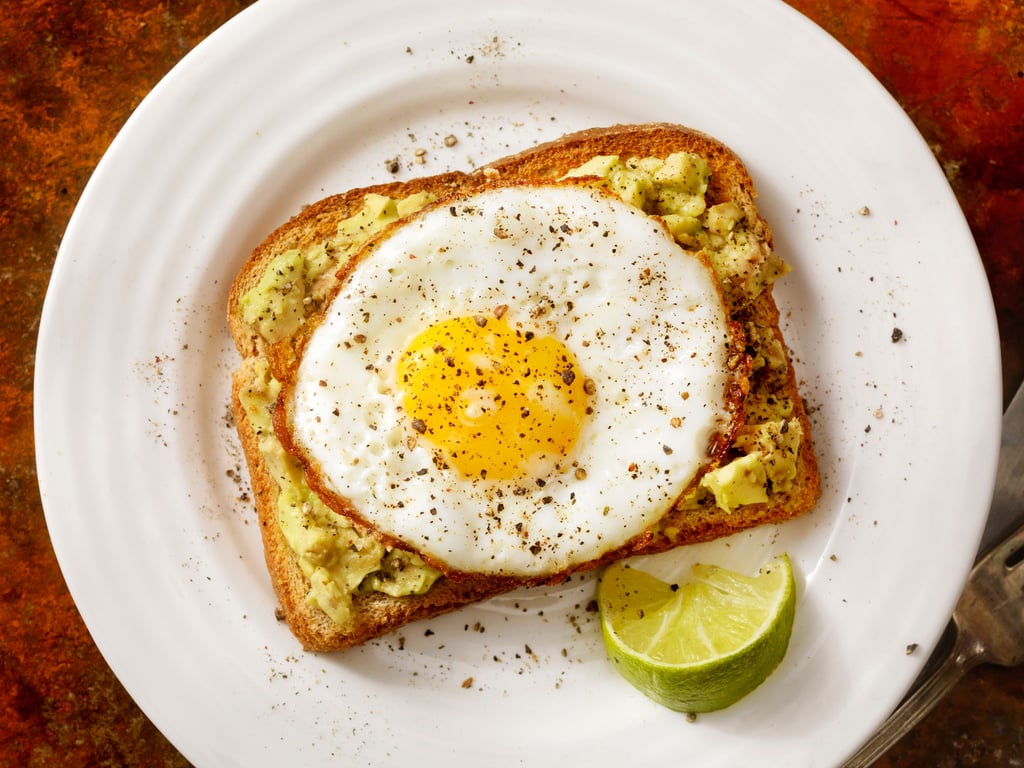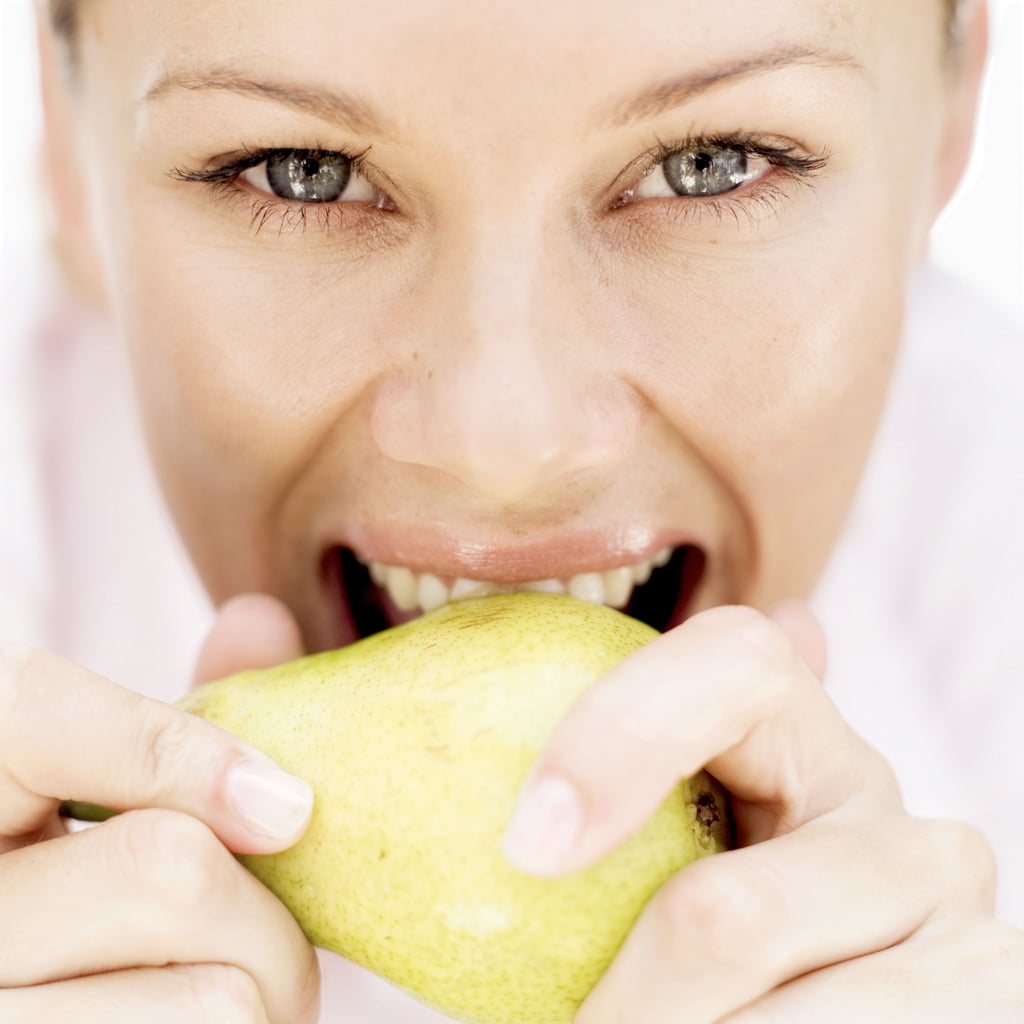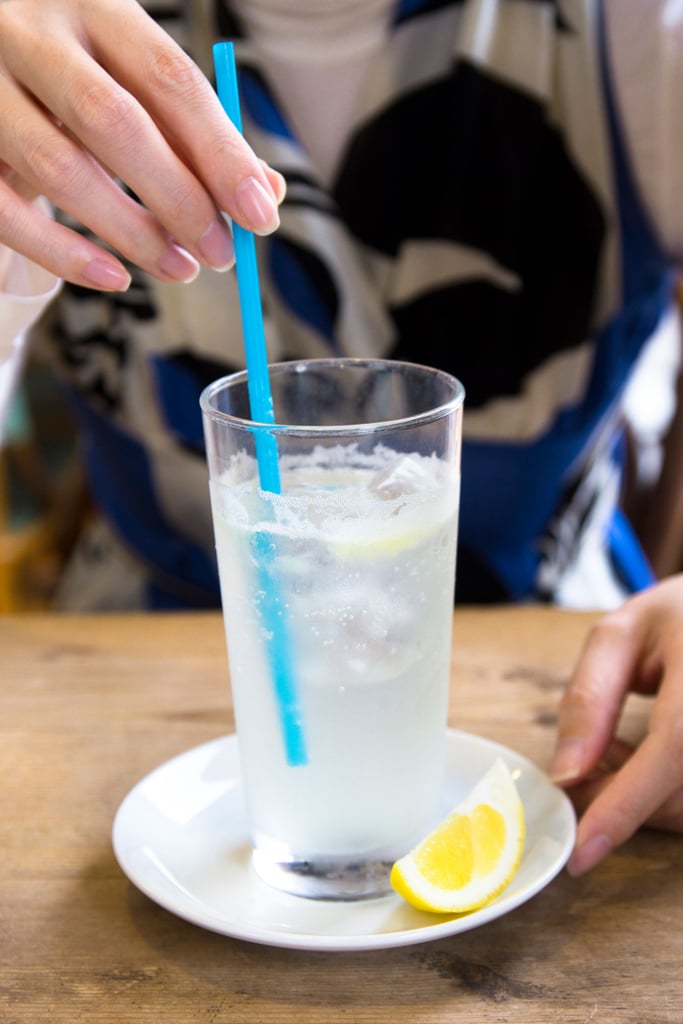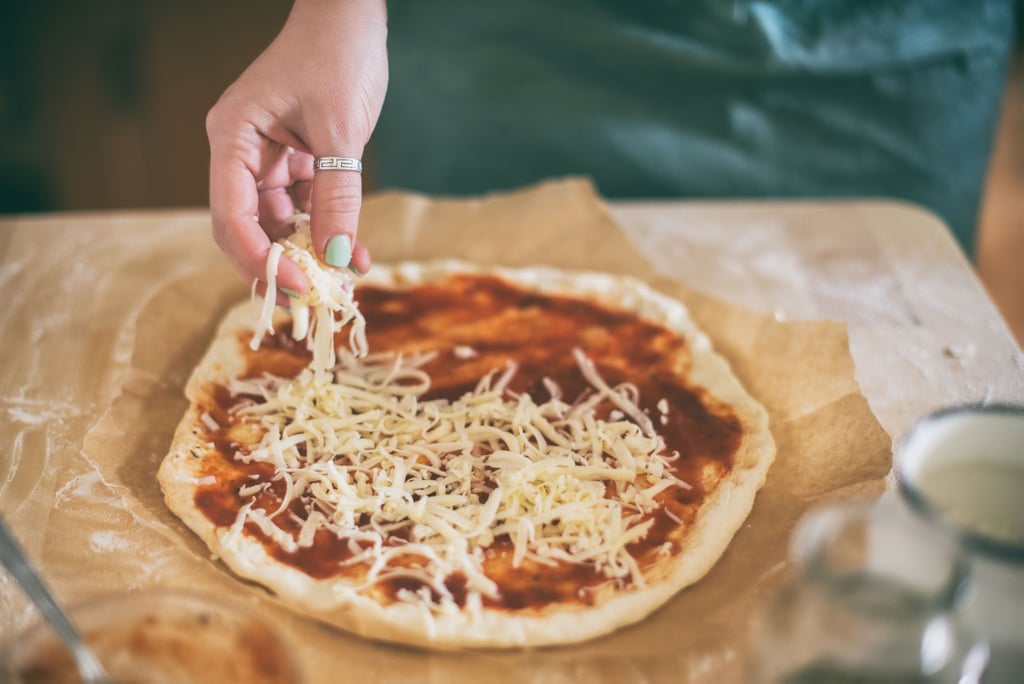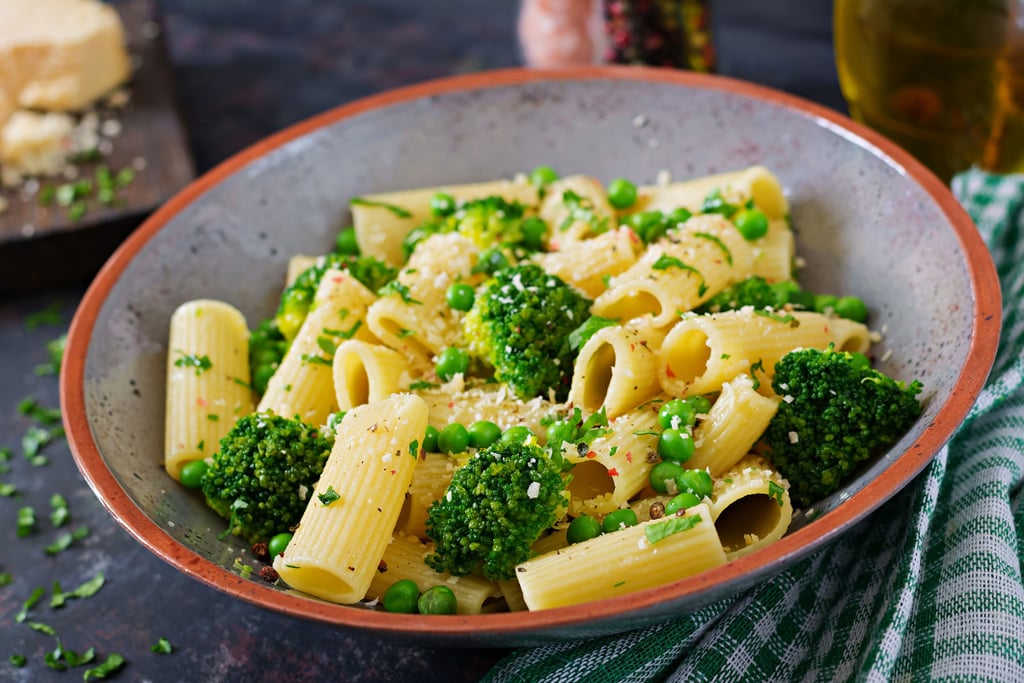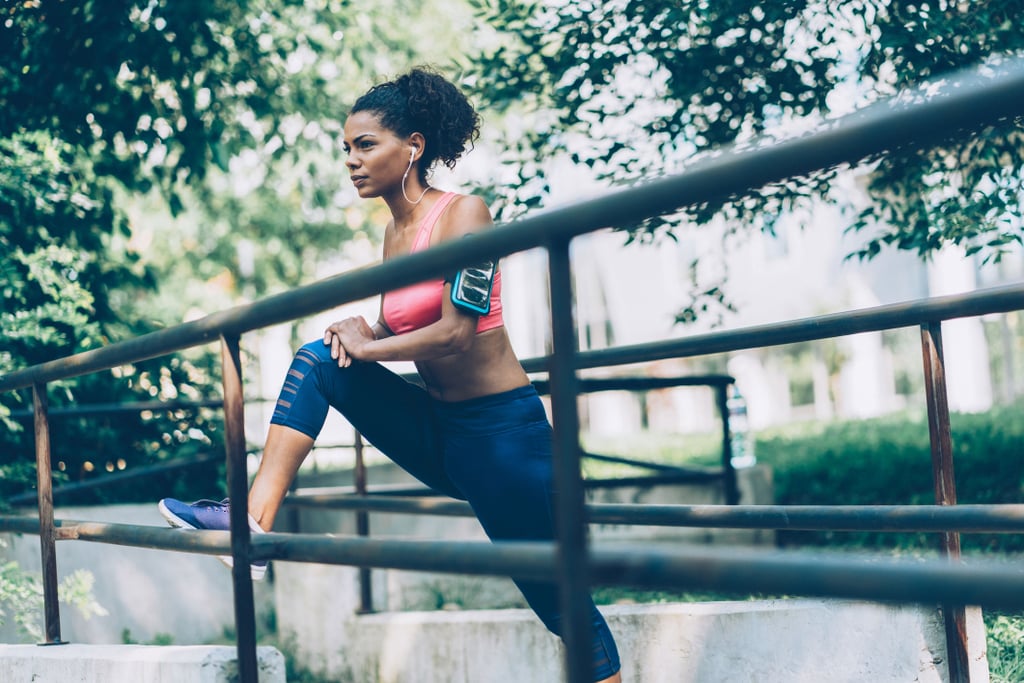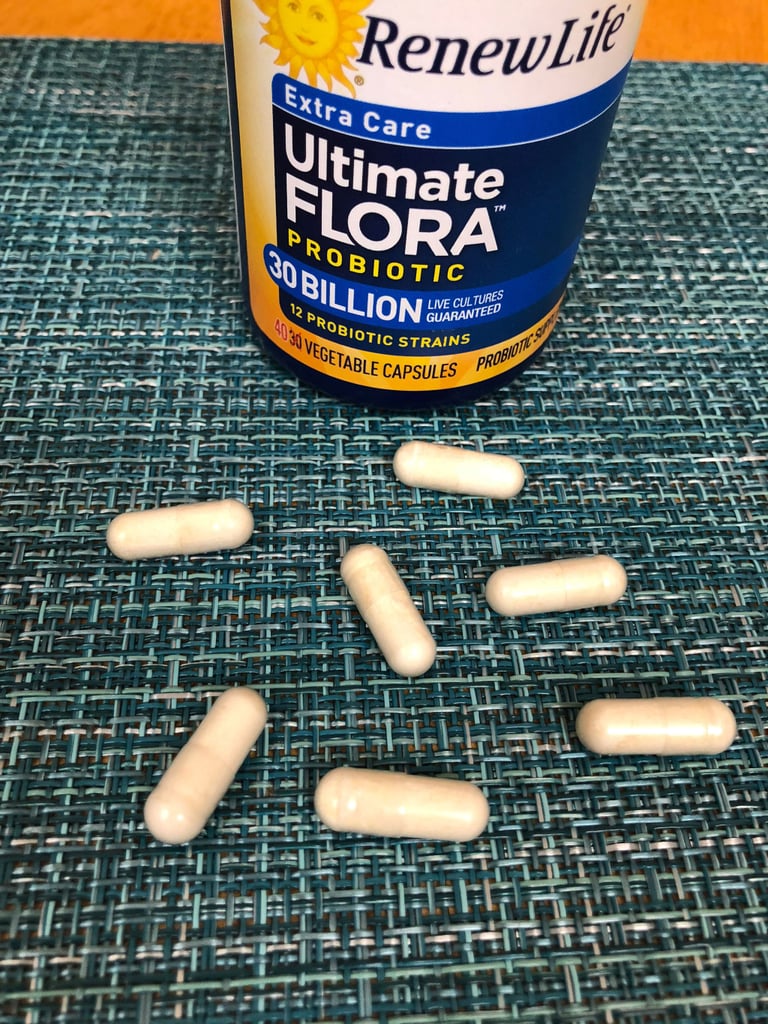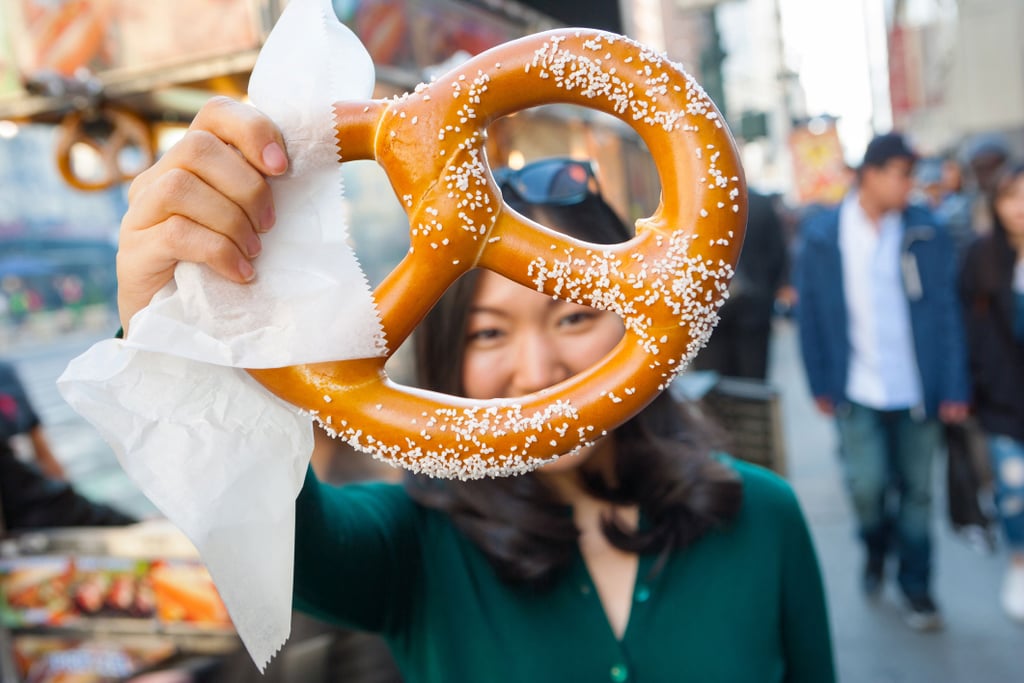Can't deal with bloating [1]? Aside from making you feel uncomfortable, it can also make you self-conscious, which isn't ideal when you want to wear tight workout clothes, high-waisted jeans, or a swimsuit.
To prevent bloating [2], we went straight to an expert for tips — after all, he sees patients with digestive issues all day long. Dr. Peyton Berookim, MD, FACG, is a double board-certified gastroenterologist and the director of the Gastroenterology Institute of Southern California, one of the most cutting-edge digestive health institutions in the world.
Dr. Berookim told POPSUGAR that "there are so many different reasons why one could experience bloating." It could be something you ate, constipation, or your menstrual cycle, but here's a list of ways you can decrease and prevent bloating [3].
Do This at Meal Time
"Avoid eating large, heavy meals," Dr. Berookim advised, and "instead eat smaller meals at regular intervals." Find a way to space out your calories that works for you, which may mean eating six small meals a day or three meals with one snack.
Or you might find that skipping breakfast and following the 16:8 method of intermittent fasting [5] helps prevent bloating [6]. It's worth a try! Again, find a way to eat that doesn't leave you feel stuffed and bloated.
Gradually Increase Fibre
Constipation can be another cause of bloating, and one cure is to eat more fibre. You don't want to go full force eating tons of apples, pears, and beans and adding flaxmeal to your smoothies [7] — that could cause major digestive disruption [8]! Dr. Berookim said to "gradually increase fibre [9] in your diet," allowing your body a chance to adapt to the change.
Skip the Fizz
Some people find that drinking soda or even sparkling water or seltzer contributes to bloating [10], because they swallow air. Dr. Berookim said to "avoid carbonated, fizzy drinks and replace them with plain water. You can make it more exciting by adding fruit slices like grapefruit [11]."
Don't Drink and Eat
Drinking more water throughout the day [12] is a well-known tactic for debloating, but this drinking tip may surprise you. Dr. Berookim said, "Avoiding drinking water with food can help prevent bloating." If you gulp down water too fast, swallowing air will cause bloating.
Avoid Dairy
Many of Dr. Berookim's patients suffer digestive issues, including bloating, because they're lactose intolerant [13]. Try eliminating dairy for a few days, including milk, cheese, butter, and yoghurt, and see how you feel.
If your bloating goes away, it's an easy fix — avoid dairy [14] and use these dairy-free alternatives [15] instead. If you can't give up dairy, you can take Lactaid pills. These pills provide your gut with the digestive enzyme lactase, which is needed to break down the milk-sugar lactose.
Limit Gas-Producing Foods
Some foods are known to cause gas for most people, so Dr. Berookim said to limit these culprits: beans, broccoli, cauliflower, onions, garlic, walnuts, dried fruit, or other foods that personally cause you bloating like whole grains or gluten [16]. If you don't want to live without beans, try this cooking hack to prevent getting gassy [17].
Work Out
Dr. Berookim tells his patients to "exercise and stay active." Moving can prevent constipation and relieve bloating. Hitting the gym and sweating can also help reduce water retention [18].
Don't Chew Gum
"Avoid chewing gum [19] since it causes one to swallow air while chewing," Dr. Berookim said. And we know that swallowing air contributes to bloating.
Try a Probiotic
Dr. Berookim recommends taking a probiotic daily [20] to help maintain the healthy, good bacteria that live in your gut.
Limit Your Salt Intake
A high-sodium diet is another contributing factor to bloating, Dr. Berookim said, since sodium leads to water retention. Aim for no more than 2,300 milligrams of sodium daily [21]. You can do this by reading labels and/or cooking at home to control the amount of sodium you eat.
When you do feel like you have eaten too much sodium, registered dietitian Rachel Fine, MS, RD, CDN, owner of To the Pointe Nutrition [22], told POPSUGAR in a previous interview that increasing your intake of fresh fruits and veggies will help to counteract the excess sodium levels [23].

